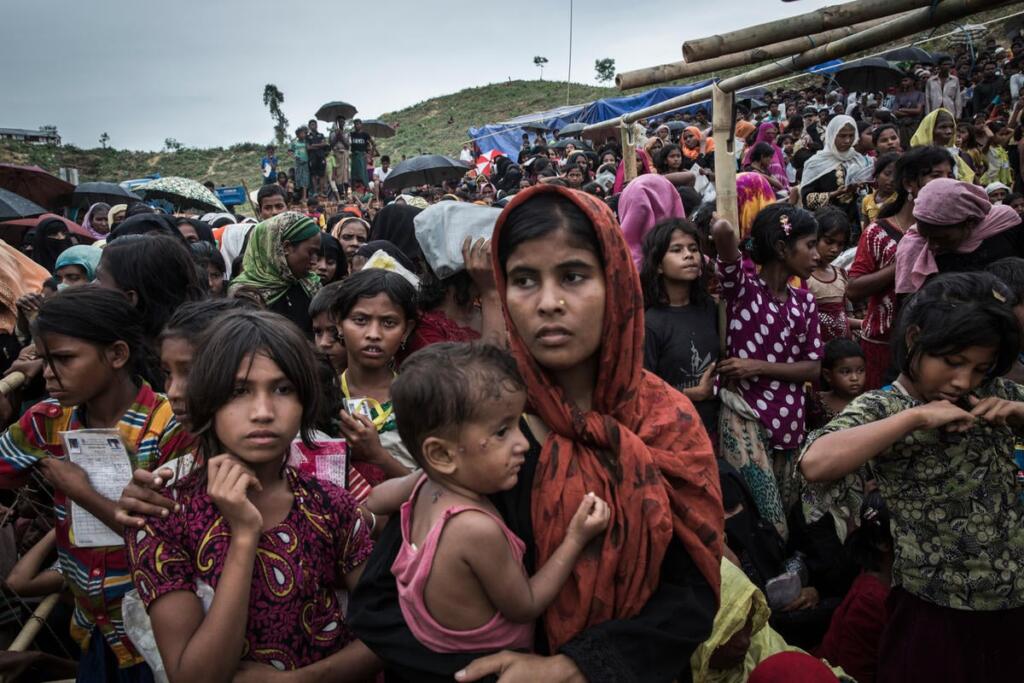The United Nations Security Council addressed the escalating humanitarian crisis in Myanmar on July 3. This crisis stems from the conflict between ethnic armed organizations (EAOs) and the military junta, creating severe humanitarian challenges.
Background of the Crisis
The roots of Myanmar’s current crisis can be traced back to the military coup on February 1, 2021. The Tatmadaw, Myanmar’s military, detained civilian leaders, including Aung San Suu Kyi, and imposed a state of emergency. This coup halted the country’s gradual transition towards democracy that had started in 2011. Consequently, widespread protests erupted across Myanmar, met with brutal military crackdowns, leading to significant civilian casualties. In response, ethnic armed groups, already in conflict with the military for years, intensified their resistance. This situation has resulted in a complex humanitarian crisis, with far-reaching implications for regional stability and international relations.
India-Myanmar Relationship
Myanmar is a neighboring country of India and holds significant strategic and collaborative importance for India. Any humanitarian crisis in Myanmar will directly impact India and neighboring countries. Let’s delve into India’s current relations with Myanmar:
Geopolitical Importance
The country holds significant geopolitical importance for India. Serving as a land bridge, Myanmar connects India’s northeastern states to Southeast Asia, enhancing regional connectivity. Additionally, India’s engagement with Myanmar helps counter China’s influence in the region.
Strategic Significance
Developments in Myanmar directly impact neighboring countries, including China, Laos, Thailand, Bangladesh, and India. Therefore, India prioritizes Myanmar in its diplomatic initiatives through its Neighbourhood First Policy and Act East Policy, aiming to strengthen ties with the Asia-Pacific region.
Areas of Collaborative Cooperation
Trade
India ranks as Myanmar’s fifth-largest trading partner, with a focus on sectors such as agriculture, pharmaceuticals, IT, and energy. These trade relations are crucial for both countries’ economies.
Energy Cooperation
India has made significant investments in Myanmar’s oil and gas sector, which play a critical role in supporting India’s energy security needs.
Infrastructure Projects
Joint infrastructure projects, like the Kaladan Multi-Modal Transit Transport and the India-Myanmar-Thailand Trilateral Highway, promote connectivity and trade between the countries.
Defense Partnership
Defense ties between India and Myanmar are fortified through regular joint military exercises and comprehensive training programs. These initiatives encompass strategic planning, tactical maneuvers, and skill enhancement, fostering mutual preparedness and interoperability. Such collaborations not only bolster bilateral defense capabilities but also contribute to regional security and stability.
Capacity Building Measures
India has extended USD 2 billion in soft loans to Myanmar and supports its educational and agricultural research institutions. Additionally, India provides timely aid during crises such as natural disasters and health emergencies.
Cultural Connectivity
A shared Buddhist heritage and historical ties foster mutual understanding and cultural exchange between India and Myanmar. The significant Indian-origin population in Myanmar contributes to its economy through various businesses and investments.
Issues Between India and Myanmar
Suspension of Free Movement Regime (FMR)
India suspended the Free Movement Regime (FMR) with Myanmar due to security concerns such as insurgent activities, trafficking, and mass immigration, which posed risks to national security. This suspension restricts the movement of refugees seeking safety and asylum in India.
Internal Security Threats
The border is porous and poorly guarded, located in a remote, insurgency-prone area near opium-producing regions. This vulnerability has been exploited by terrorist and insurgent groups from India’s northeastern states, who have established camps in Myanmar.
China’s Influence
China’s substantial economic influence in Myanmar poses a challenge for India, affecting bilateral relations. Additionally, delays in joint infrastructure projects and the Rohingya crisis further strain ties, reflecting broader security and humanitarian concerns.
Conclusion
In the face of challenges like regional security threats and China’s influence, India must pursue strategic diplomacy, expedite joint infrastructure projects, and enhance security cooperation to mitigate tensions and promote stability in the region. Furthermore, reconsidering the suspension of the FMR could provide immediate humanitarian relief to affected communities and enhance India’s reputation as a responsible regional power committed to humanitarian principles.
ALSO READ: Almost 10 Bridges Collapsed in Bihar in less than 3 Weeks due to……..?
